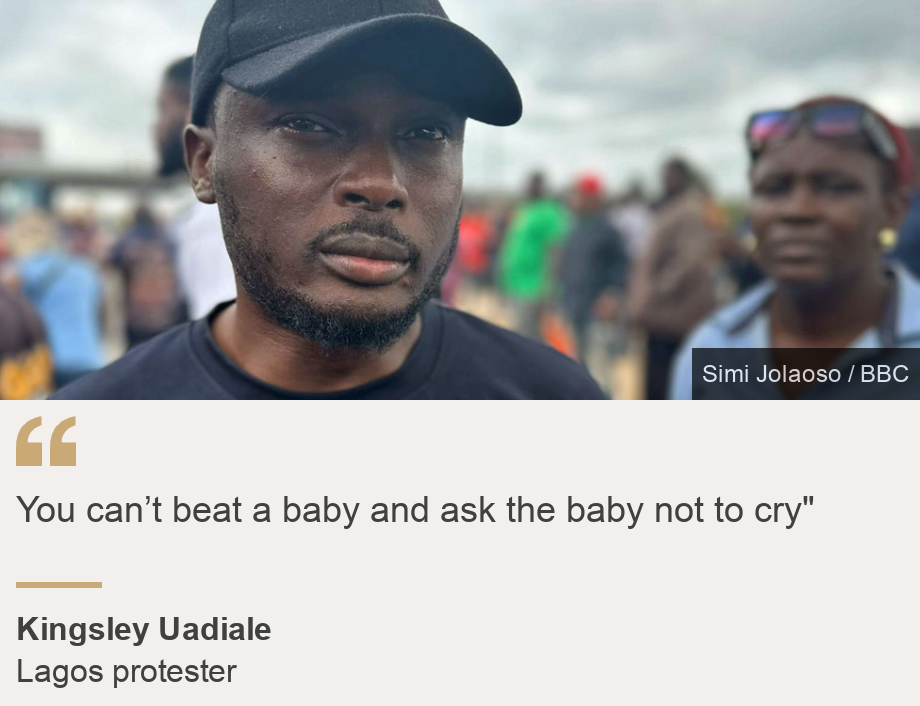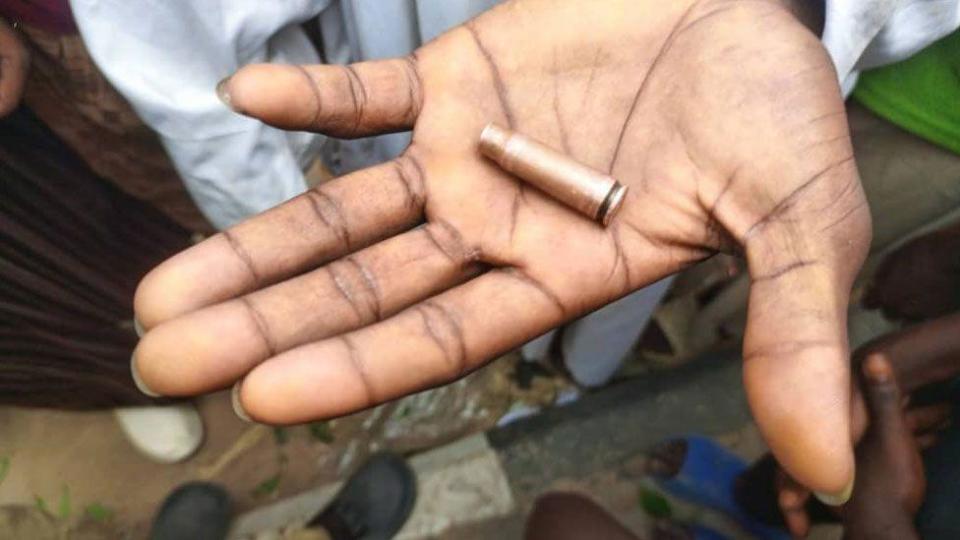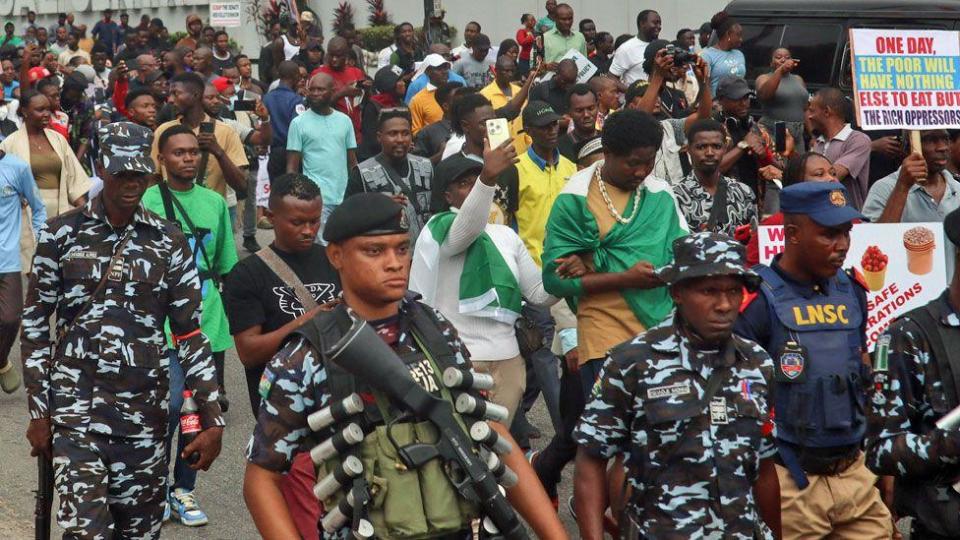A curfew was imposed in Nigeria’s second-largest state, Kano, after protests against the high cost of living were “hijacked by bandits” who engaged in widespread looting and property destruction, the governor’s office said.
Kano saw the biggest crowds on the first day of nationwide protests that forced many businesses to close.
Protesters in every major city took to the streets, shouting slogans such as: “We are hungry.”
Police fired live bullets and tear gas – and sprayed hot water – to try to disperse thousands of protesters in the city of Kano. Four people were injured and taken to hospital.
Protesters had already lit tires to make a bonfire in front of the house of the state governor, Abba Kabir Yusuf.
Looters also broke into a warehouse near the governor’s house and people were seen carrying 25-liter boxes of vegetable cooking oil and mattresses.
The curfew effectively prevents protests from continuing, and all residents are expected to remain at home.
The last census in Nigeria, in 2006, estimated Kano State’s population at 9.4 million, with unofficial estimates putting its current population at around 20 million.
The protests – called for 10 days – were organized through social media and inspired by the recent success of protesters in Kenya, who forced the government to abandon plans to increase taxes.
Yusuf’s spokesman said protests were peaceful in Kano, but he was forced to declare a curfew to “restore order and ensure the safety of our communities”.
On Wednesday night, a court ordered protesters in the capital, Abuja, to stay at the National Stadium, which is on the outskirts of the city.
But after gathering outside the stadium on Thursday morning, the protesters – who have also shouted the slogan “End bad governance” – began heading towards the city center.
This led police to fire tear gas canisters to try to stop the procession, which affected traffic.
Security forces were positioned in strategic locations in the capital, where even banks are closed, and in neighboring cities.
In Lagos, Nigeria’s economic center, protesters shouted “ole”, which means “thief” in the Yoruba language – in reference to President Bola Tinubu and his government.
Many are angered by President Tinubu’s removal of a fuel subsidy – announced with immediate effect during his inauguration speech in May 2023.
Its aim was to cut public spending, but it caused pump prices to soar, with a ripple effect on other goods.
“The main demand on our part is the removal of subsidies. The government should reverse this decision,” Abuja protester Abiodun Sanusi told the BBC.
They also want the government to carry out comprehensive reforms in the country’s electoral system and judiciary.

Before this so-called “day of anger”, the government appealed to Nigerians not to take to the streets and to give the president time for policies to bear fruit.
But Lagos protester Kingsley Uadiale rejected this claim, saying: “Hunger is the reason we are all here. You can’t hit a baby and ask him not to cry.”
If the Tinubu administration wanted patience, he said, it should lead by example.
“You cannot tell us to be patient and you are acquiring a private jet,” he said, citing plans to buy new planes worth millions of dollars for Tinubu and his deputy, Kashim Shettima.
Dabiraoluwa Adeyinka, an activist also protesting in Lagos, said the aim of the demonstration was to reverse price increases on essential commodities.
“If they don’t give in, we will continue to protest,” she told the BBC
Additional reporting by BBC reporters Zaharadeen Lawal in Kano, Chris Ewokor in Abuja and Simi Jolaoso in Lagos.




You might also be interested in:


Go to BBCAfrica.com for more news from the African continent.
Follow us on Twitter @BBCAfricaon Facebook at BBC Africa or on Instagram at bbcafrica

































